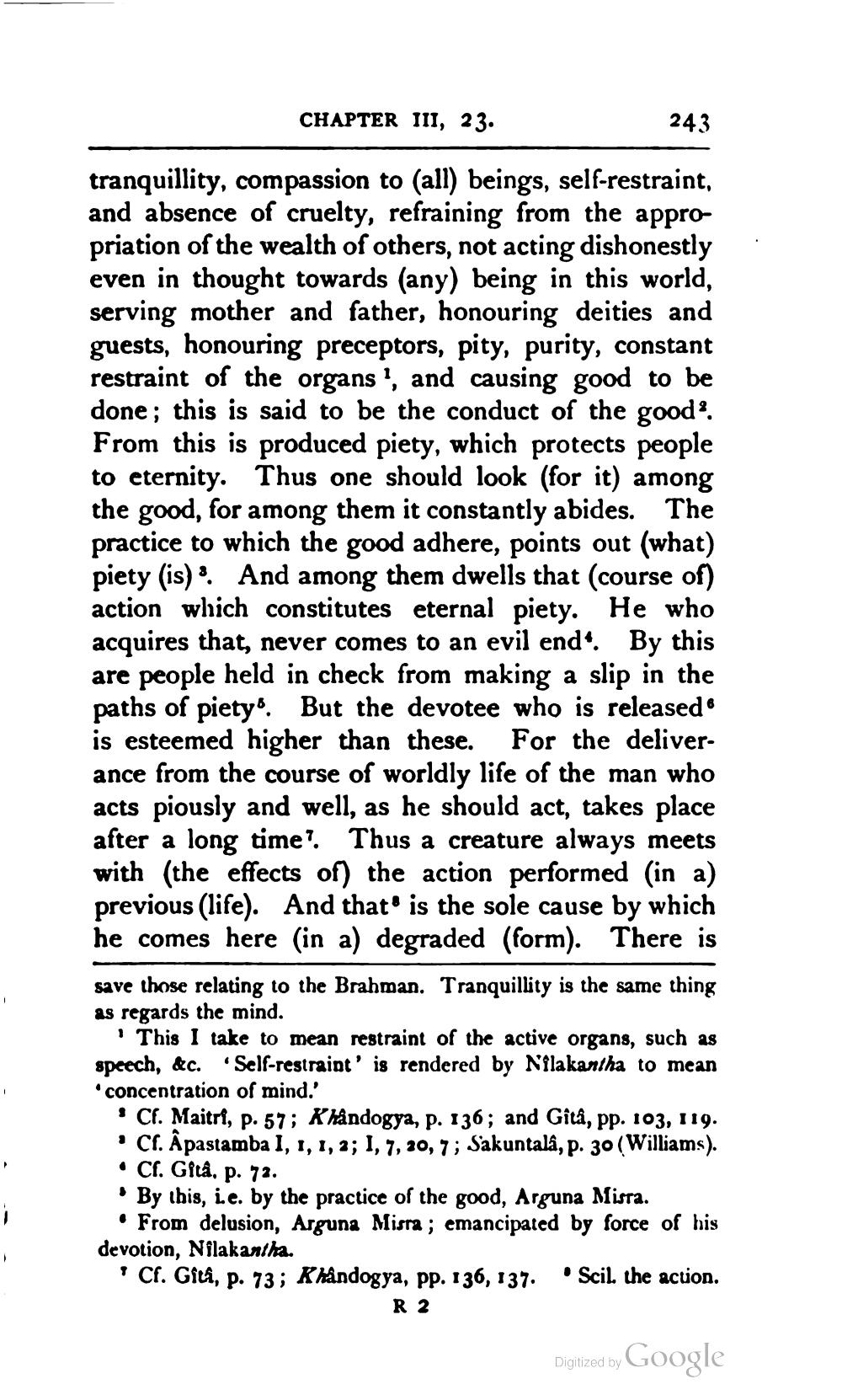________________
CHAPTER III, 23.
243
tranquillity, compassion to (all) beings, self-restraint, and absence of cruelty, refraining from the appropriation of the wealth of others, not acting dishonestly even in thought towards (any) being in this world, serving mother and father, honouring deities and guests, honouring preceptors, pity, purity, constant restraint of the organs !, and causing good to be done; this is said to be the conduct of the good. From this is produced piety, which protects people to eternity. Thus one should look (for it) among the good, for among them it constantly abides. The practice to which the good adhere, points out (what) piety (is). And among them dwells that (course of) action which constitutes eternal piety. He who acquires that, never comes to an evil end”. By this are people held in check from making a slip in the paths of piety. But the devotee who is released is esteemed higher than these. For the deliverance from the course of worldly life of the man who acts piously and well, as he should act, takes place after a long time? Thus a creature always meets with (the effects of the action performed (in a) previous (life). And that is the sole cause by which he comes here (in a) degraded (form). There is save those relating to the Brahman. Tranquillity is the same thing as regards the mind.
This I take to mean restraint of the active organs, such as speech, &c. "Self-restraint' is rendered by Nilakantha to mean • concentration of mind.'
• Cl. Maitri, p. 57; Khåndogya, p. 136; and Gitá, pp. 103, 119. • Cr. Apastamba I, 1, 1, 2; 1, 7, 20, 7; Sakuntala, p. 30 (Williams). • Cf. Gità. p. 72.
By this, i.e. by the practice of the good, Arguna Misra. • From delusion, Arguna Misra ; emancipated by force of his devotion, Nilakantha. Cf. Gica, p. 73; Rhåndogya, pp. 136, 137. Scil the action.
R 2
Digitized by Google




